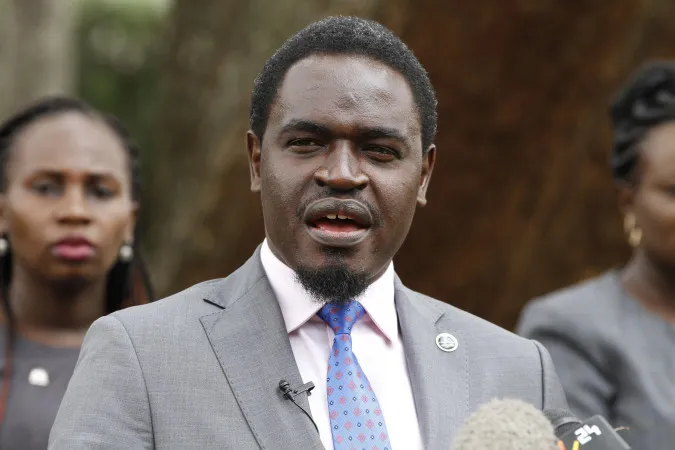Former Law Society of Kenya (LSK) President Nelson Havi has called on the public, judiciary, and civil society to stay focused on the broader goal of police accountability, even as controversy swirls around the disappearance and resurfacing of blogger Ndiang’ui Kinyagia.
In a statement on Thursday, July 3, 2025, Havi addressed the fallout from Kinyagia’s disappearance, which had triggered national concern and a high-profile court directive by Justice Chacha Mwita demanding that police produce the blogger “dead or alive.”
“The single incident should, however, not derail momentum for police accountability,” Havi said.
He strongly criticised Kinyagia’s conduct, suggesting it had “given undeserved credence to positions taken by the National Police Service (NPS) and the Directorate of Criminal Investigations (DCI)”—institutions that have repeatedly come under fire for alleged enforced disappearances and abductions of activists and online critics.
Havi lamented the impact of the incident on the justice movement, noting that it had “embarrassed a well-meaning judge” and temporarily disrupted the momentum behind police reform campaigns.
Despite the setback, Havi reiterated that the larger push for police accountability must not lose steam, emphasizing that the structural issues of abuse, lack of transparency, and extrajudicial actions by security agencies remain unresolved.
Let us not allow one episode to discredit an entire movement committed to justice,” he wrote.
Kinyagia, a social media activist, went missing on June 21, 2025, after posting controversial content online about the June 25 anti-government protests. His disappearance sparked fears of state-led abduction, and the Law Society of Kenya (LSK) and civil rights groups launched urgent efforts to trace him.
But when he reappeared alive on July 3, escorted by his legal team, the narrative took a dramatic turn. His lawyer later revealed that Kinyagia had gone into hiding after learning that DCI officers were allegedly seeking him, and claimed he feared for his life.
Public reaction has been split—some expressed relief that he was safe, while others accused him of undermining genuine cases of abduction by state agents.
Earlier court proceedings, presided over by Justice Mwita, had laid the blame squarely on police, stating:
There is no way a Kenyan can leave his house and vanish without a trace. Let’s stop playing drama and focus on what our Constitution requires.”
Although the High Court has since barred the DCI from arresting Kinyagia and scheduled the next hearing for July 18, the incident has reignited national debates over misuse of state power, civil liberties, and the delicate balance between security and free expression.


